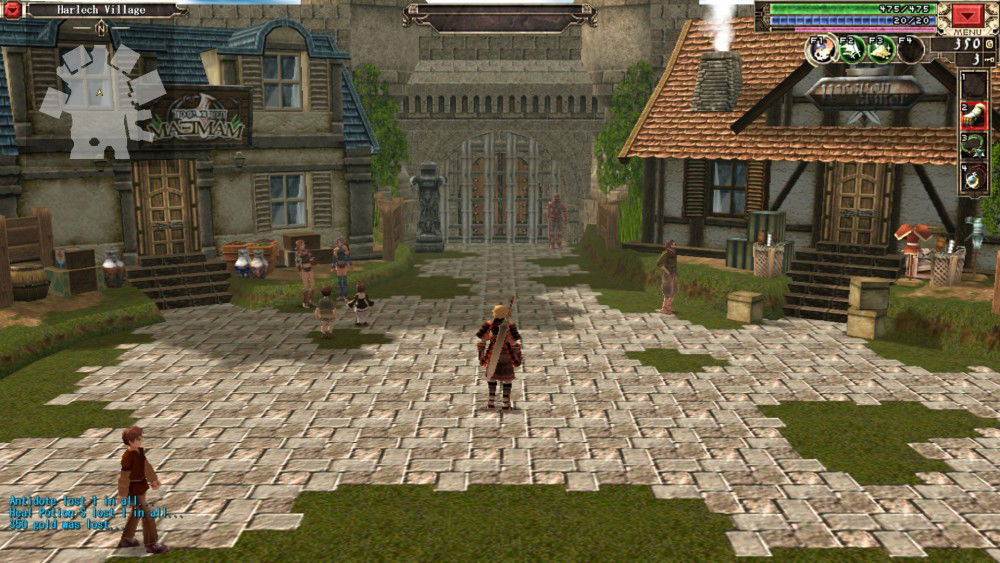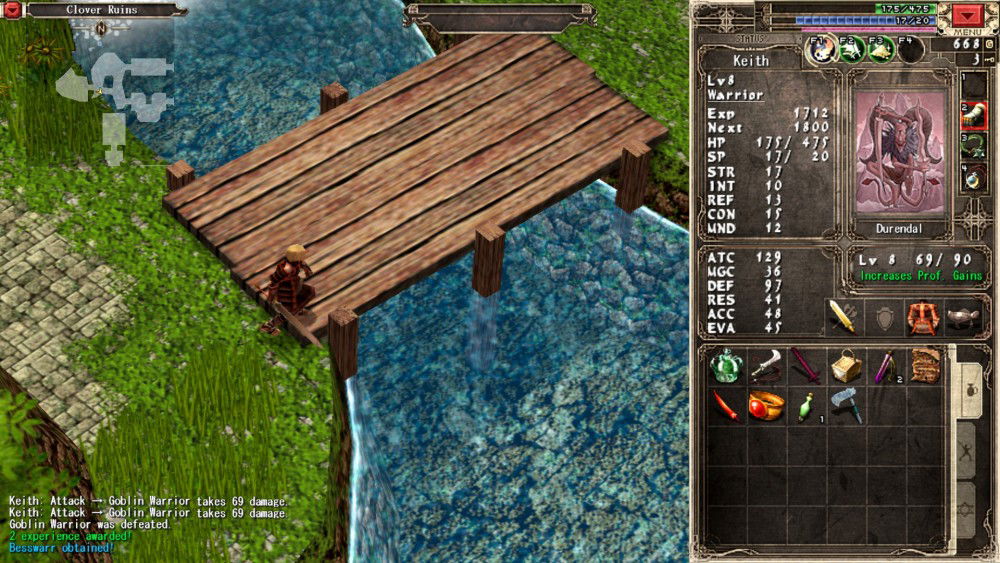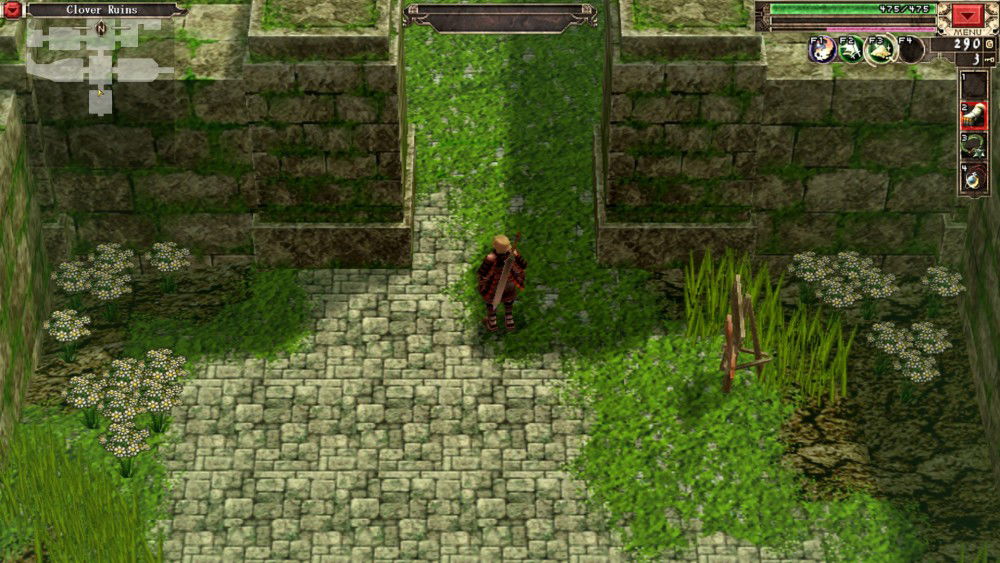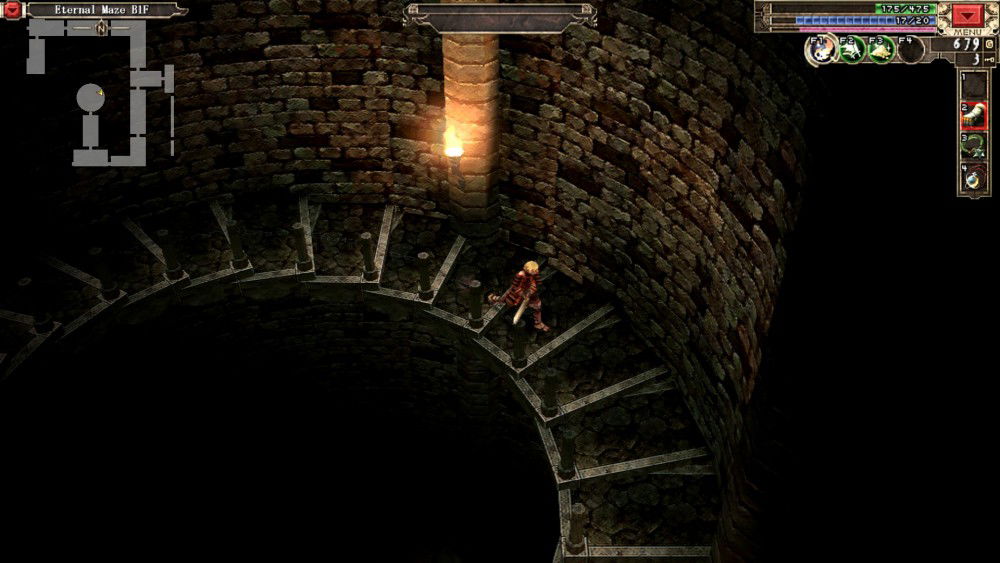Going into this review I hadn’t actually played any of the previous Xanadu titles, with the exception of what is likely the first one back on the Nintendo Entertainment System. Yes, I’m referring to Faxanadu and yes it was a very long time ago. That said, I was pretty eager to jump back into a series that Nihon Falcom has been perfecting throughout the years and one that has a seemingly devoted fan base. I also want to point out that while the game is called Xanadu Next, which would make the uninformed believe that this is a new chapter in the Xanadu series. Instead, it is a localized port of a game developed for the Windows PC back during 2005, but only for the Japanese market.
That was 11 years ago!
I was wondered why XSEED and Nihon Falcom even bothered to localize this title after all that time, I loaded it up and started playing. All the while I felt like I was being pulled back into a time where RPG’s were of a simpler nature.
Game Name: Xanadu Next
Platform(s): PC
Publisher(s): XSEED, Nihon Falcom
Developer(s): Nihon Falcom
Release Date: 11.3.2016
Price: $19.99
At the start of our the game, we take control of a disgraced knight, who was a former member of a regime that was marked as being detestable. With him is a young girl, Char, who has hired you to be her bodyguard. During their travels, they come to a town and start questioning the townspeople. Eventually, you’re told about a location and you set off to check it out. Only, some time later you’re ambushed by a character that goes by the name of Dvorak, who makes short work of you and leaves you for dead. As you lie on the ground dying, you’re eventually saved by the town’s priestess, but at a grave cost. This scenario plants all of the necessary seeds for the plot of Xanadu Next.
By some divine fate, the town’s priestess was able to save you by intertwining your soul with that of an island’s Guardian Spirit. As this is something unique to this island, you are now forever bound to it. Of course, this doesn’t sit well with your character. He wants no part of this and has plans to disembark, but that seems like an impossibility now. However, he is informed about one item that could grant him this ability: the Dragon Slayer sword. The sword is a fabled, ancient weapon that is able to fulfill the desires of whoever wields it. Your task is to find the Dragon Slayer, and if you should happen to come across anyone that needs help, to assist them as any noble knight would.
At the heart of the game is an older, yet enjoyable action-RPG/dungeon crawler. A genre that we really don’t get as much as we should in these days. It easily reminded me of games of old, such as Secret of Mana, Baldur’s Gate or even the more recent Diablo III. You’re given a set of instructions or told where you need to go and then you’re sent off. Along the way, you encounter all sorts of creatures and NPCs along with a bevy of items and money that are useful for upgrading your gear. To be honest, this is all standard flair. Yet, the story is compelling and it drives you to discover what will happen to your character. It does slow down often and, at times, I did get tired of killing quite a large number of enemies. This makes the game feel a bit grindy to a fault, that is, if you are wanting to basically overpower the game. I imagine that a number of RPG fans would select this path as some players do gain the enjoyment of making the content trivial, yet it seems that the developers had that in mind. When you constantly level up, enemies lose a number of experience points they rewarded previously. So that large group of enemies that gave you ten experience points per kill, two levels later will only give you one experience point making it take longer to grind money and experience. It’s definitely still possible, but it does drag out the game a bit if you choose to do this.
TIP: Any chests you encounter during gameplay that give gold need to be revisited as much as possible. They will still give you gold whenever you access them after loading your game save.
Speaking of experience points, the game does have a rather interesting leveling system. Every time you gain a level, instead of your attributes being automatically upgraded, you get a set number of points instead. You’ll then be free to assign those points to one of five different stats – STR, INT, REF, CON and MND. These stats are your most basic leveling mechanics that are found in any Action RPG title. Now, while that’s standard fare, what I really liked was the ability to downgrade. Yes, despite the game being eleven plus years , it has a progression system that I feel is better than most that are used in today’s games. Say you assigned your points and then decided to get a new piece of gear, only to realize that your stats are not where they need to be. Normally in any other game, you’d just have to wait until you leveled up again and make sure you do it right next time.
Xanadu Next handles this in an original and different manner as you can simply downgrade your character, affectingly adding your stat points back into your pool. This allows you to constantly tweak your character as you see fit. I found this very appealing and wished that other games in the same genre would do something similar. you also have a sub-system for any weapons you may acquire. Every weapon is unique and when you first pick them up they start with you having zero proficiency with them. Only by using it over and over, will you raise it and eventually make it the strongest it can be. This is worth investing time in because instead of constantly swapping weapons as a higher proficiency, it means that you are guaranteed more hits with them.
In addition to the leveling system, you’re also able to make use of Guardian cards. These are the very same Guardians that were infused into your soul to save you, which also provide passive abilities. For example, one card will raise your HP, while another will increase your weapon proficiency. There are many others that you can seek out and collect. To use them, you merely equip them at the same place you go to assign your points to your stats. As a added bonus, those Guardian cards can also amass experience points, so as long as you gain experience points, so do they.
As you would expect from an eleven-year-old title, the graphics of Xanadu Next definitely aren’t remotely close to the games of today. They’re blocky, low resolution and are full of jagged edges. Yet at the same time, it gives the game that old-school charm, as if you were back on a Super Nintendo or Sega Genesis. Regardless of the low-resolution nature of the game, it’s still playable. The closest thing to related this to would be if you took a PS Vita or Nintendo 3DS game and played it on a larger screen. The sounds on the other hard are decent. Everything from the sound effects of weapons clashing, the grunts of taking damage and even the in-game music. The tunes do get very repetitive as they are constantly looping, keep that in mind.
Overlooking the graphics and sound, Xanadu Next does suffer from one flaw. This flaw, while not game breaking by any stretch, is quite annoying and it centers around the controls and inventory system. During combat, the controls are fine, just s long as you’re not trying to shuffle through your abilities or inventory. I can’t count how many times I’ve tried to switch to different abilities or items only for the game to not recognize the button presses. I later discovered that as long as you’re moving using the analog sticks, you aren’t able to use the d-pad. So the only way to switch to the magic fireball of death or that healing potion is to stop dead in your tracks. That causes a bit of an issue when enemies are giving chase. The inventory system is another story and one that really frustrates me. During your time with Xanadu, you’ll find several items that you need to use in order to progress through the game and those items need to be in your active inventory bar. If they sit in your bags, you need to stop what you’re doing, open up the inventory and move them to your quick use bar. This is for the most part, fine, unless you’ve added other items to your quick use bar such as healing potions, antidotes, etc.
There’s also only four slots available. This means you’ll have to stop, yet again, to play the juggling game instead of using passive items which just sit in your inventory. Changing the button mappings for controllers is also a bit of a mess. You don’t get an option to select the in-game movement or button and then press the corresponding button on the controller. Instead, you’re greeted with a large number of button labels and unless you know which is which you’re going to be spending a long time configuring that controller.
Despite the flaws I mentioned, Xanadu Next is a fun romp and a nice eye opener to games that were created years or even decades ago. It shows that they can still stand the test of time and remain enjoyable. I was hard pressed to put down the game until I finished it and while I wished it was a bit easier on the eyes, there’s no denying the charm that Xanadu Next generates.
*Xanadu Next was provided to us by XSEED / MARVELOUS! for review purposes. For more information on how we review video games and other media/technology, please go review our Review Guideline/Scoring Policy for more info.
Overall
Before I even started playing Xanadu Next, I had already dismissed it as a sloppy RPG and a wasted port. Thankfully, after I started playing the game, I realized just how wrong I was. I can’t even begin to recall ever playing a Nihon Falcom game that has disappointed me. Despite not having played any of the previous Xanadu titles, I was familiar with the studio’s other works such s Y’s and The Legend of Heroes – both of which are fantastic and timeless classics. The game may not look pretty, it’s definitely a bit rough around the edges but at the heart of the game beats a fun 12 hours RPG with more than enough story to keep you entertained until the end. It’s a shame that we haven’t gotten more of Xanadu games in North America, especially after playing this.
Though I did notice that another title, Toyko Xanadu, that was released in Japan in 2015, is also getting prepped for a North American release for the PS Vita Windows PC for release in 2017. I’ll have to make sure I play that so I don’t miss out on that either.
Pros:
- Engaging story line
- Innovative level system
- Reminds me of a simpler time of video games
Cons:
- Dated graphics
- Cumbersome controls during battle
- Bosses are bit on the easy side
-
An old school action RPG definitely worth the time






